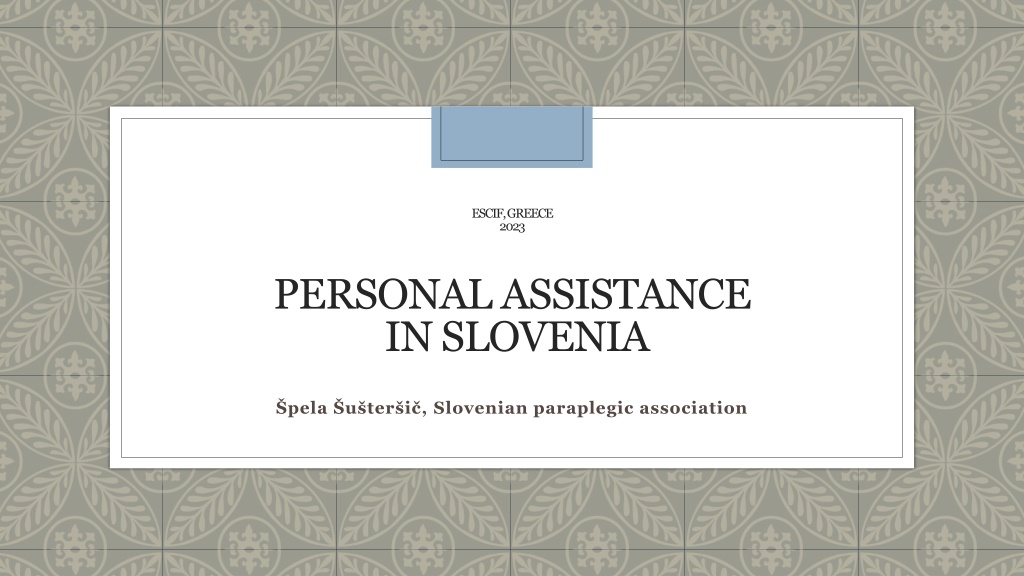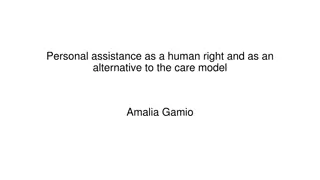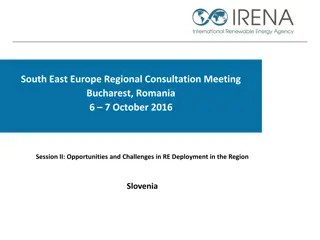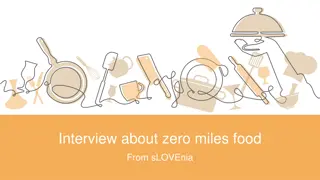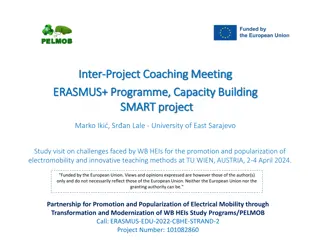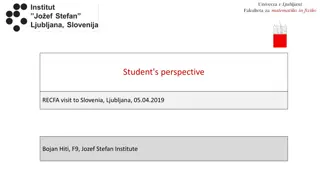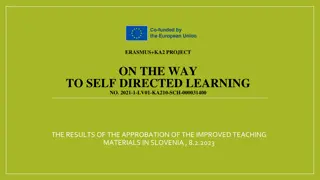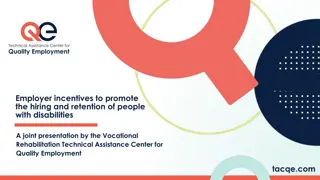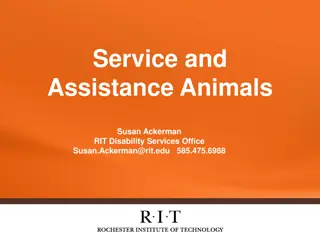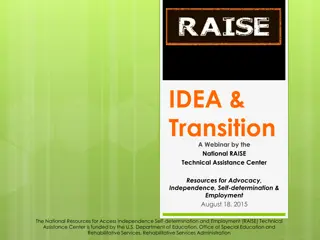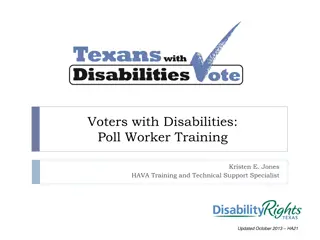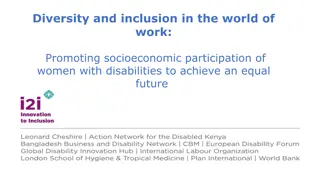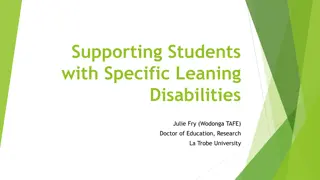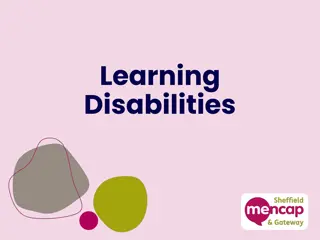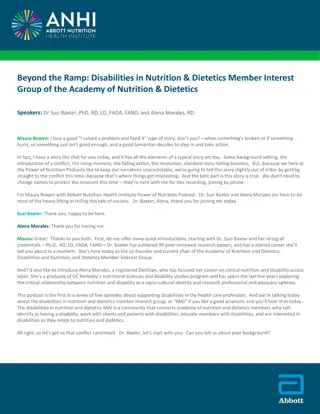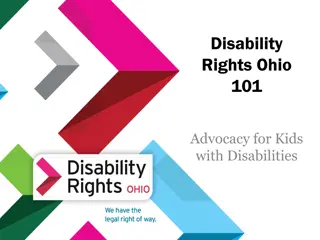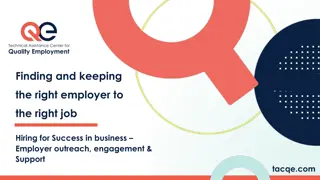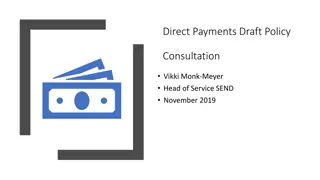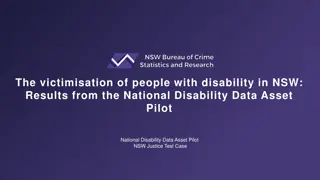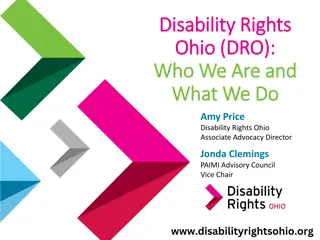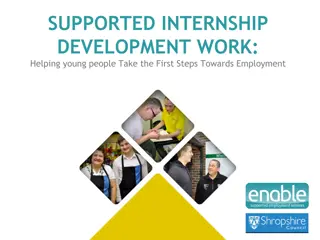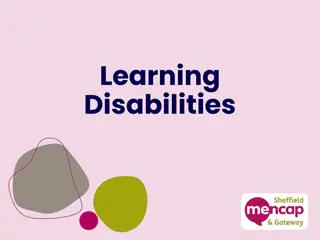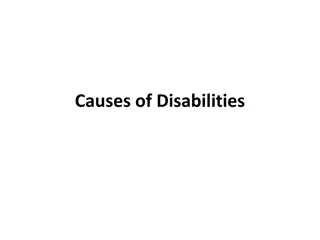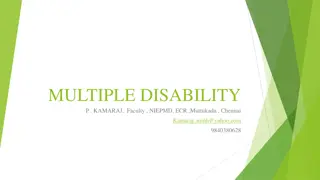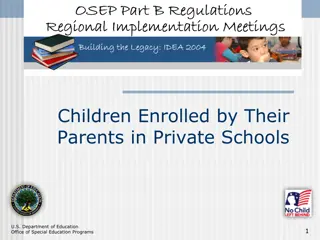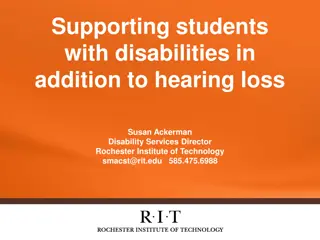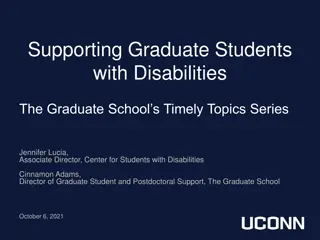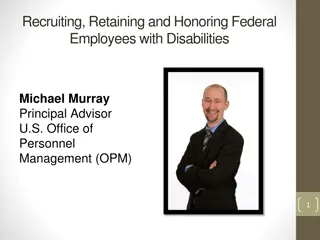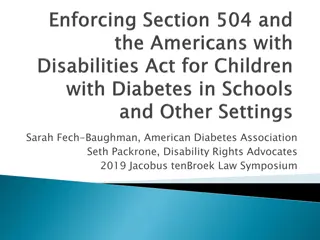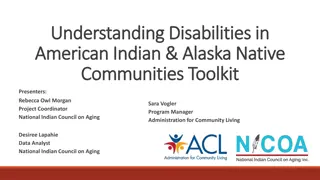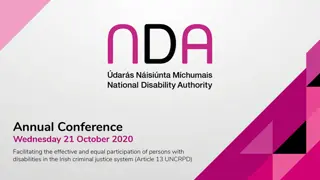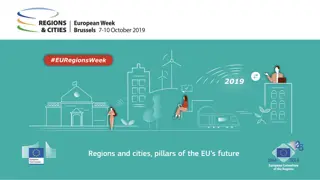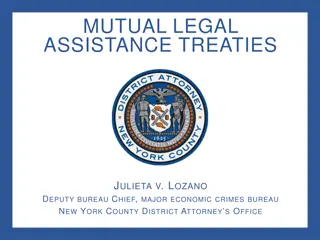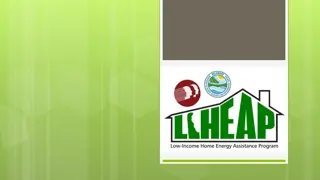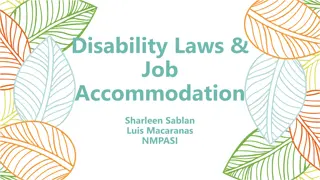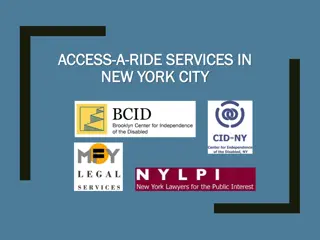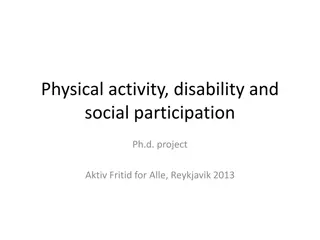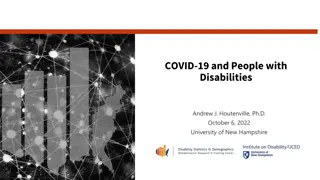Evolution of Personal Assistance for People with Disabilities in Slovenia
Personal assistance for people with disabilities in Slovenia has evolved over the years. Before 2019, the program faced challenges like insufficient funding, lack of candidates for personal assistant jobs, and long waiting lists. However, since 2019, personal assistance has become a legal right, with increased funding and improved accessibility for individuals with mobility impairments, neurological conditions, and sensory disabilities. The new system allows for more user participation, better payment for personal assistants, and a wider range of service providers.
Download Presentation

Please find below an Image/Link to download the presentation.
The content on the website is provided AS IS for your information and personal use only. It may not be sold, licensed, or shared on other websites without obtaining consent from the author. Download presentation by click this link. If you encounter any issues during the download, it is possible that the publisher has removed the file from their server.
E N D
Presentation Transcript
ESCIF, GREECE 2023 PERSONAL ASSISTANCE IN SLOVENIA pela u ter i , Slovenian paraplegic association
Personal assistance before 2019 as programme from 2003 to 2018: personal assistance for people with disabilities was organised by Ministry of social affairs through public tender Programme was implementet by disability organizations it was financed by the Ministry of social affairs and FIHO foundation (foundation for financing disability and humanitarian organizations) It was 34 disability organizations, they provided personal assistance only for their members the programme included 1.200 people with disabilities and 450 employed personal assistants (PA) people can get personal assistance only for 8 our per day, 40 hours per week Budget was 6.000.000 million EUR
there wasn't enough money to include all the people with disabilities into the program there were enough candidates for the job of a personal assistant employees did not receive enough payment for their work single entry point for the type of disability organizations had to collect donations for the implementation of personal assistance family members volunteered to help. many people with disability were on the waiting list for a long time (sometimes years) there was no replacement for the absence of personal assistants
Personal assistance since 2019 legal right financed by Ministry of Social affairs; the price per hour is 15,00 EUR - users of personal assistance participate with half of their budget for help due to their disability status, which is specified in the law governing pension and disability insurances (86 EUR, 173 EUR or 248 EUR when somebodies condition requires more help) - 107 different providers with different views what personal assistance should be ( small private companys, small association witch were establish only for personal assistance) 4000 people with disability and 8000 personal assistants (4000 family members) The budget for this year is 180.000.000 million EUR
Who can get personal assistance? The right to have personal assistance can be acquired by people who belong to one of the following categories: people with mobility impairments (because of injury, illness, .), people with neurological diseases or conditions, people with sensory disabilities (blind and partially sighted, deaf and hard of hearing). minimum 30 hours per week, up to 24/7 assistance
Personal assistance can be provided to people who: need help in carrying out activities related to independent personal and family life, - integration into the environment, education and employment have a permanent residence in the Republic of Slovenia - are between 18 and 65 years old - live or would like to live in an independent household or live outside of full-day institutional - care or need help with communication -
Types of personal assistance: personal care from basic personal care to help with aspirations, 24/7 monitoring, catheterization or other medical care help in the household with domestic work and other similar help accompany or help through presence help at the workplace and in the educational process help with communication
Communication allowance This right that can be granted to a deaf, blind or deaf-blind person who only needs help with communication and complements personal assistance services. The beneficiary of the communication allowance can decide to: - apply for personal assistance up to 30 hours per month or - money compensation of 173,56 EUR
Procedure to get personal asisstance a request for personal assistance is submitted at the Social Work Centre (documentation explaining why help is needed and the type of disability - proof of disability is required) a two-member commission assesses the needs and approves the number of hours of personal assistance (questionnaire, points)
How personal assistance work in practice: after choosing a personal assistance provider, a person can start planing assistance with the help of coordinators provider once a month a person with disability plan personal assistence with coodinator employed at provider (schedule) PA have to register online their presence at work Ministry controls if PA were registered accordance with the plan (web application) provider send monthly bill to Ministry, they check and pay once on month for all hour of personal assistance once a year annual report to Ministry
Who can be a personal assistant? - an adult person who has not been legally convicted of a criminal act - they can as well be (close or more distant) family members of the person with disability (limited to 2 assistants of that type) - has completed the basic training Payment: Close to minimum wage in Slovenia (1.203,36) or 1.226,82 EUR
not enough candidates for the work of PA family members do not want to volunteer to help employees do not receive sufficient payment for their work people with disabilities live more active lives, they are not allone at home, we can see them outside more included userses to many different providers (107) PA work with people alone in their home , they do not have the support of a team PA do not get enough help from other services to help them maintain business relationship with the person they are taking care of they can get or use 24/7 assistance replacement of PA when they go on holidays providers do not get enough financial resources to cover all the costs of personal assistance from the Ministry People end providers are outplaying the system for financial benefits
